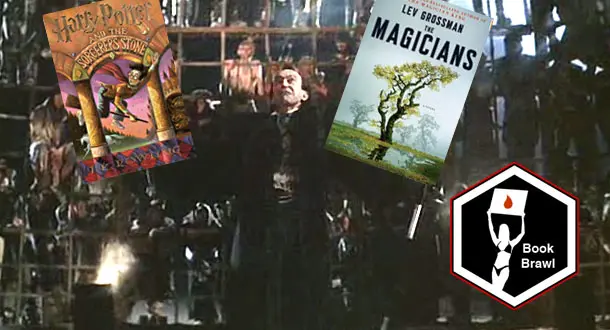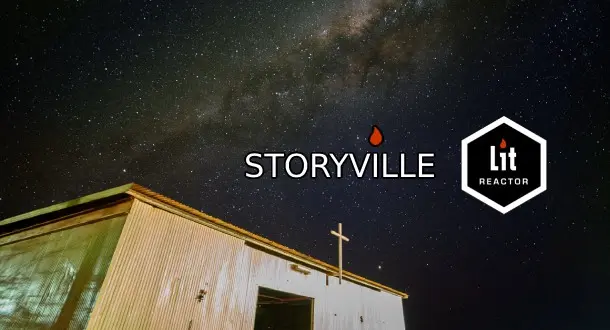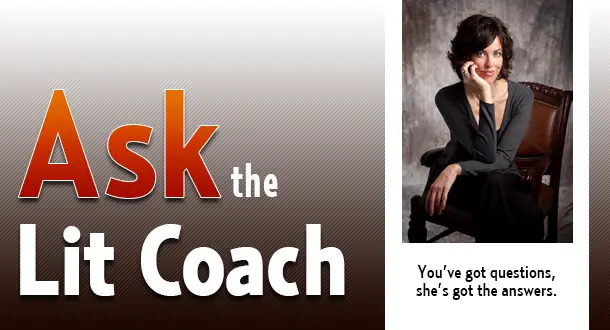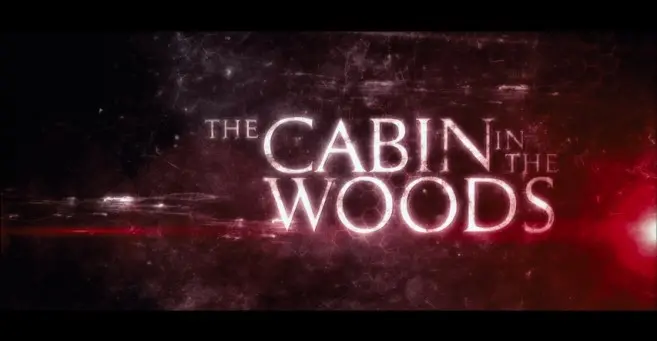Menu
Columns
Showing 3546 Columns
Showing 3546 Columns
April 19th, 2012

Something terrible has happened; teachers are actually instructing their students to drop the comma before the word and in sentences that use serial (or list) commas. I learned this today while talking to a coworker about some corrections he made to document. When I asked him why, he said his college professor had told him never to put a comma there, and she actually graded him down for doing so.
Read Column →April 18th, 2012

Welcome back to Book Brawl, in which we throw two books into the ring to watch them fight it out for the coveted title of literary champion. Today's pugilist publications are the first books in two different series about seemingly average boys being sent to magical schools: J.K. Rowling's Harry Potter and the Sorcerer's Stone (1997) and Lev Grossman's The Magicians (2009).
Read Column →April 17th, 2012

You’ve certainly all heard about the concept of “showing, not telling.” Basically, what this concept stresses is how to reveal things by allowing your reader to discover, label and define for themselves. Don’t tell us a woman is beautiful. I mean, what does “beauty” even look like? To one person it may be long blonde hair, blue eyes, and a conservative manner of dress. To somebody else it may be short black hair, dark eyes, tattoos, piercings and boots. And besides, it’s vague and empty. Beautiful doesn’t mean anything.
Read Column →April 17th, 2012

Every place you submit, you can usually sample what they publish. Just to get a feel for what works there, what doesn’t—whether the current editorial tastes veer toward the gory and in your face or seem to be more in keeping with first-person first-kiss kind of stories. And this goes beyond publishing: before you apply for a job you can cruise the aisles of the store, see if people are slicking their hair back and covering their tattoos. And, if you want the job, you take their lead, you fall in. You need that check.
Read Column →April 17th, 2012

ADDRESS: 1800 West 39th St., Kansas City, MO, 64111 HOURS: Mon - Sat: 10:30 am - 10:00 pm, Sun: 10:30 am - 6:00 pm ON THE WEB: Website, Facebook
Read Column →April 16th, 2012

LURID: vivid in shocking detail; sensational, horrible in savagery or violence, or, a twice-monthly guide to the merits of the kind of Bad Books you never want your co-workers to know you're reading.
Read Column →April 16th, 2012

Is it possible to find a U.S. publisher for your Spanish language novel? How do authors attract an agent or promote their book if they choose to publish under a nom de plume? Those are the burning questions answered in this issue of Ask The Lit Coach. Question from Ernesto G. I am in the process of writing a novel, based on historical facts, it will be done in Spanish, since it will deal with the Salvadoran civil war. What would you advice as the best publishing house for that sort of material?
Read Column →April 13th, 2012

The best horror stories make you keep on suspecting that this can’t possibly go on. That things have already reached their bloody crescendo, have hit that point past which any reasonable story is going to have run out of gas. That’s right about when Cabin in the Woods starts picking up speed.
Read Column →April 13th, 2012

Book trailers. They are officially a thing. And the world is a better place for it. But from whence came they? And since whence? Wikipedia has the (contested) answers: The term "book trailer" is currently a trademarked term owned by Sheila Clover of Circle of Seven Productions. The first book trailer to be played publicly was at a book convention in Shreveport, Louisiana in 2003 [contradiction], Dark Symphony by Christine Feehan.
Read Column →April 12th, 2012

For a geek like me, spotting a science fiction reference buried in popular music is a rare and wondrous thing. In the middle school of life musicians are the cool kids, while online sci-fi columnists are… crap, this analogy is depressing. Regardless, it’s always nice and surprising to discover that creative people are being influenced by the same authors and stories I revere.
Read Column →Submitting your manuscript?
Professional editors help your manuscript stand out for the right reasons.
